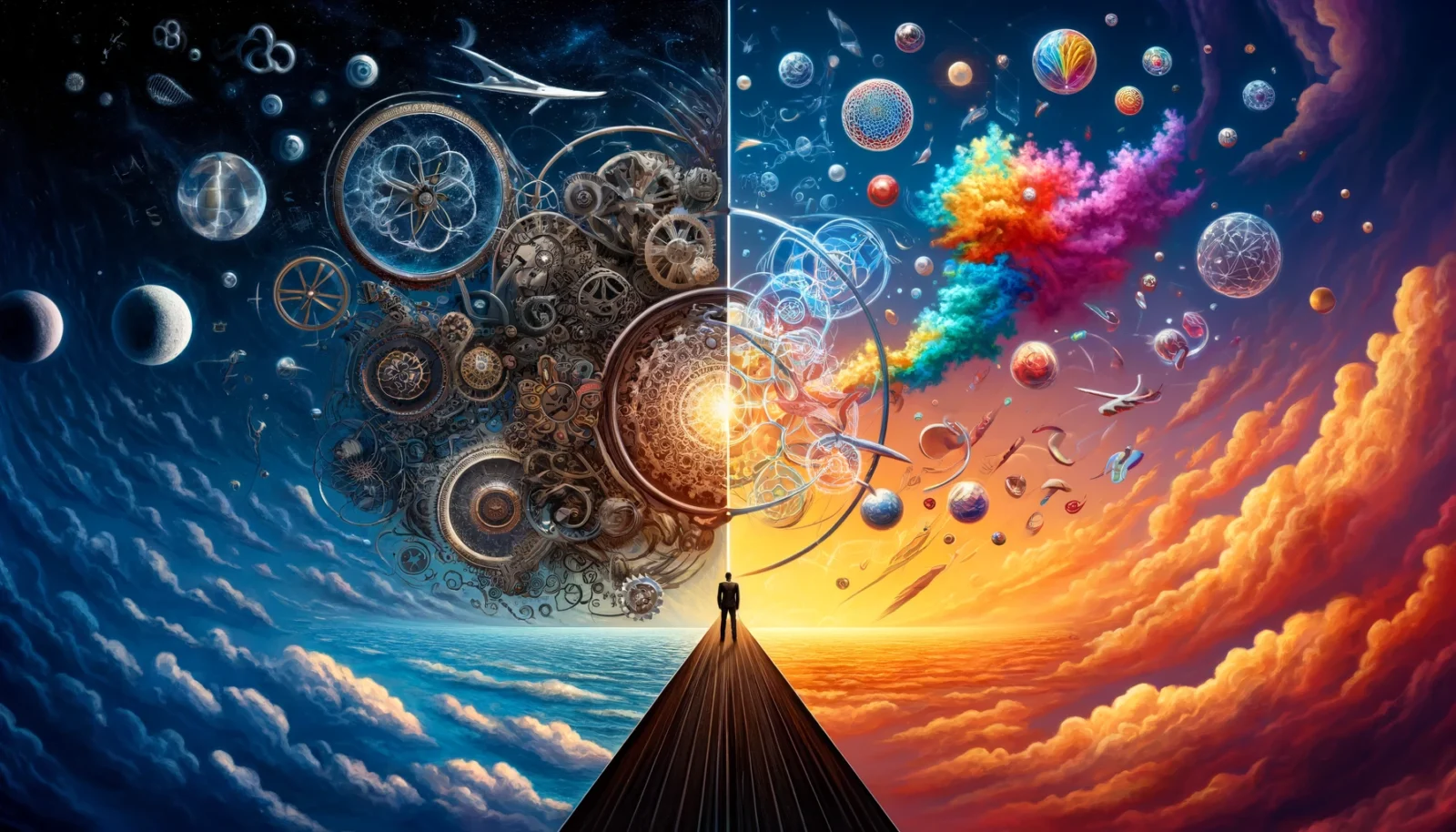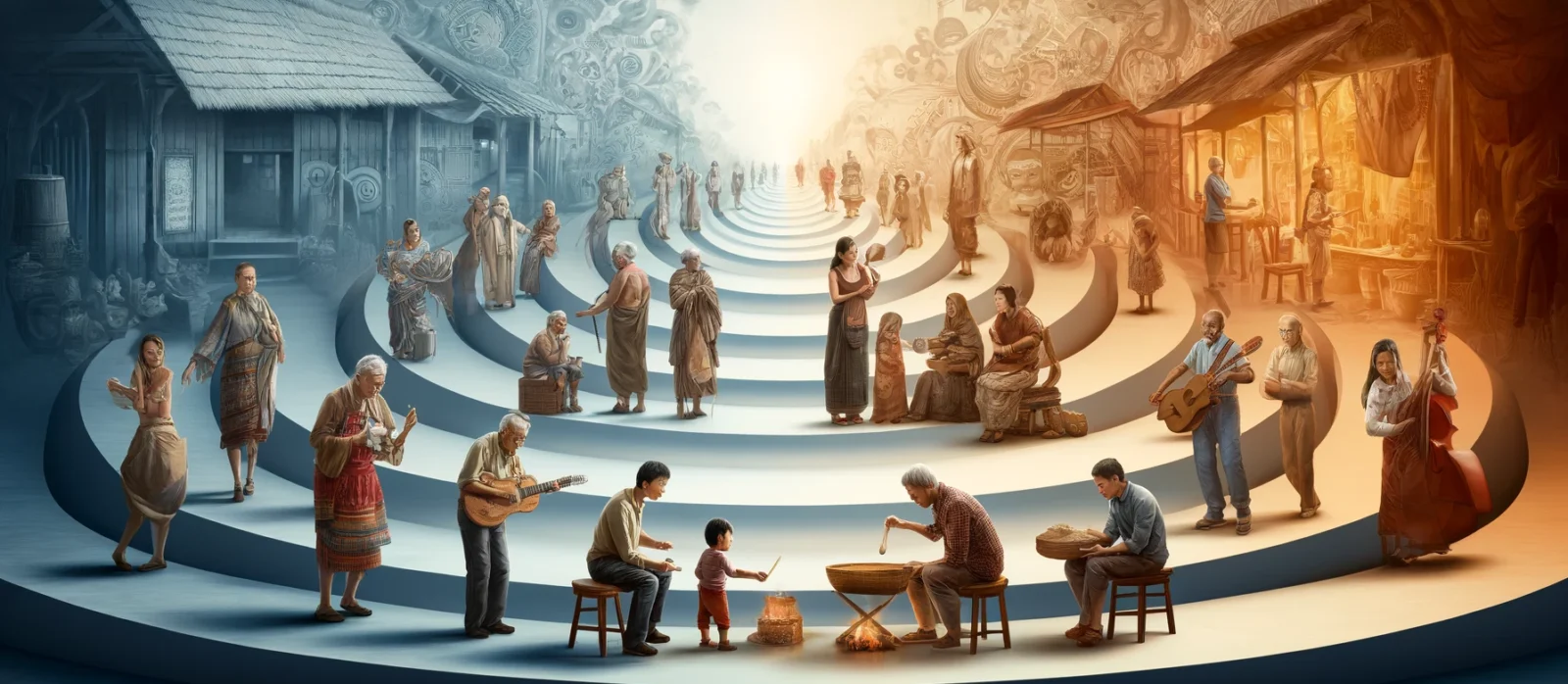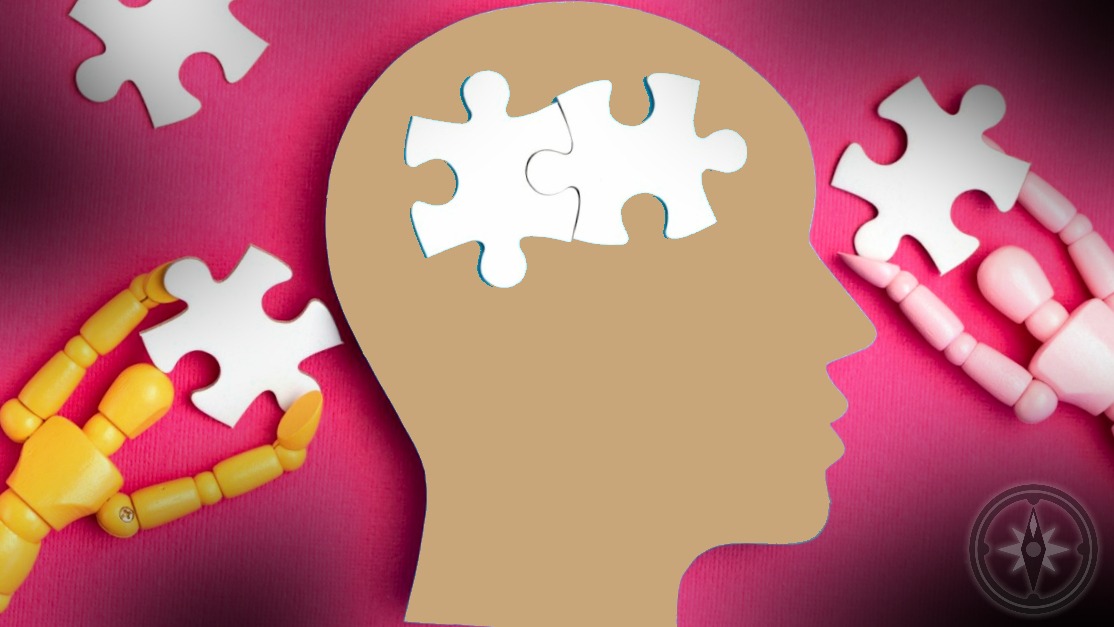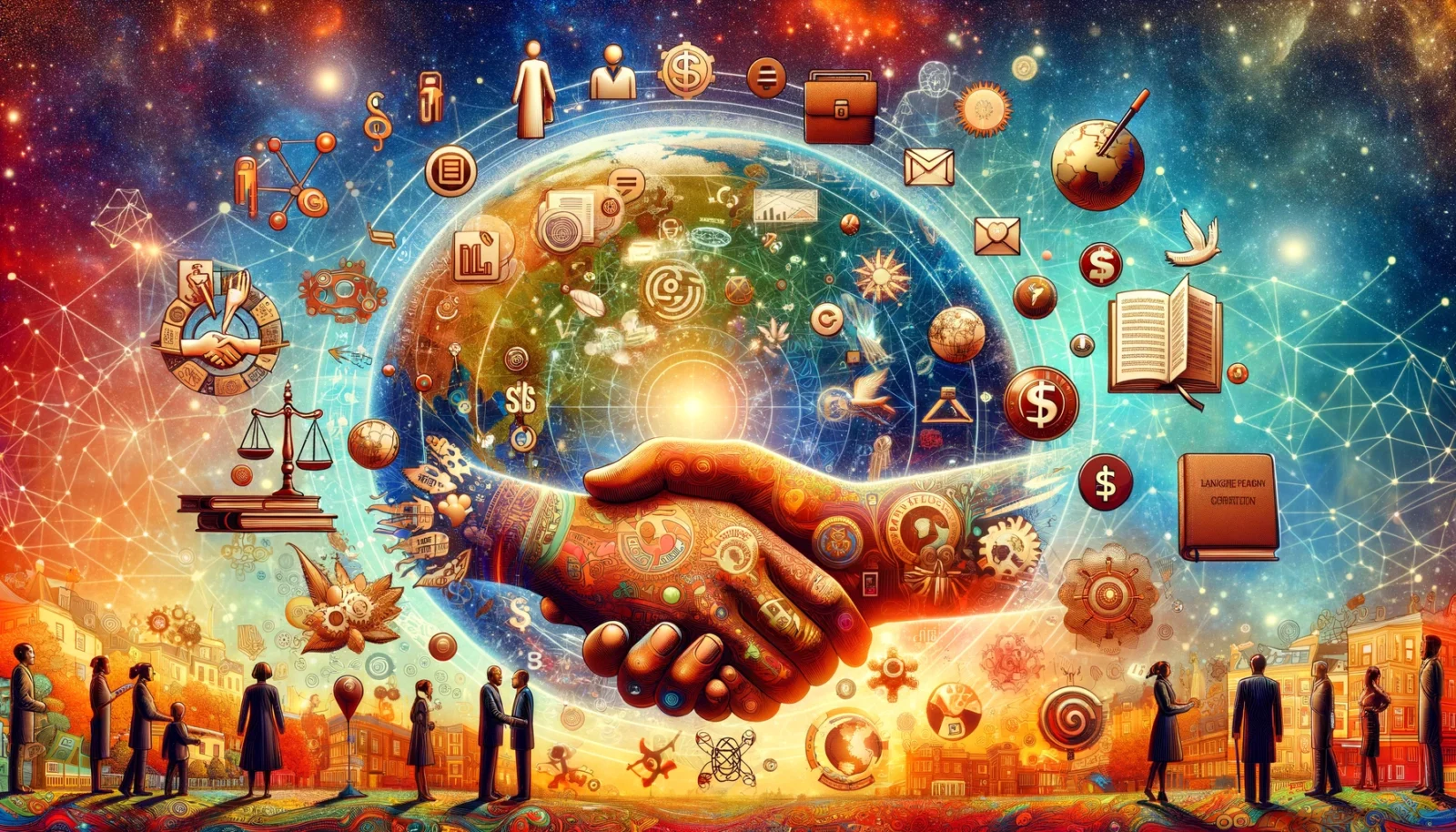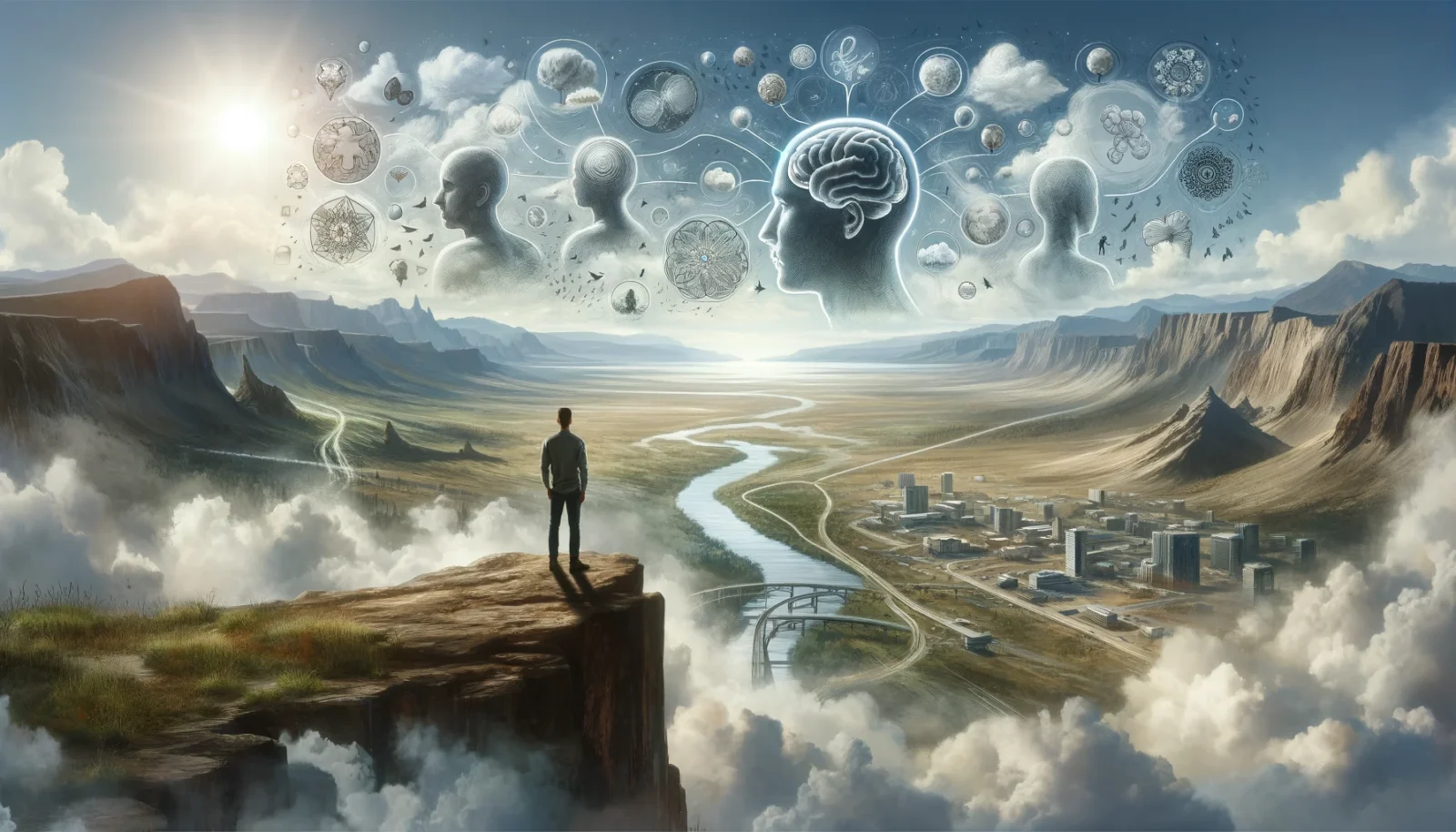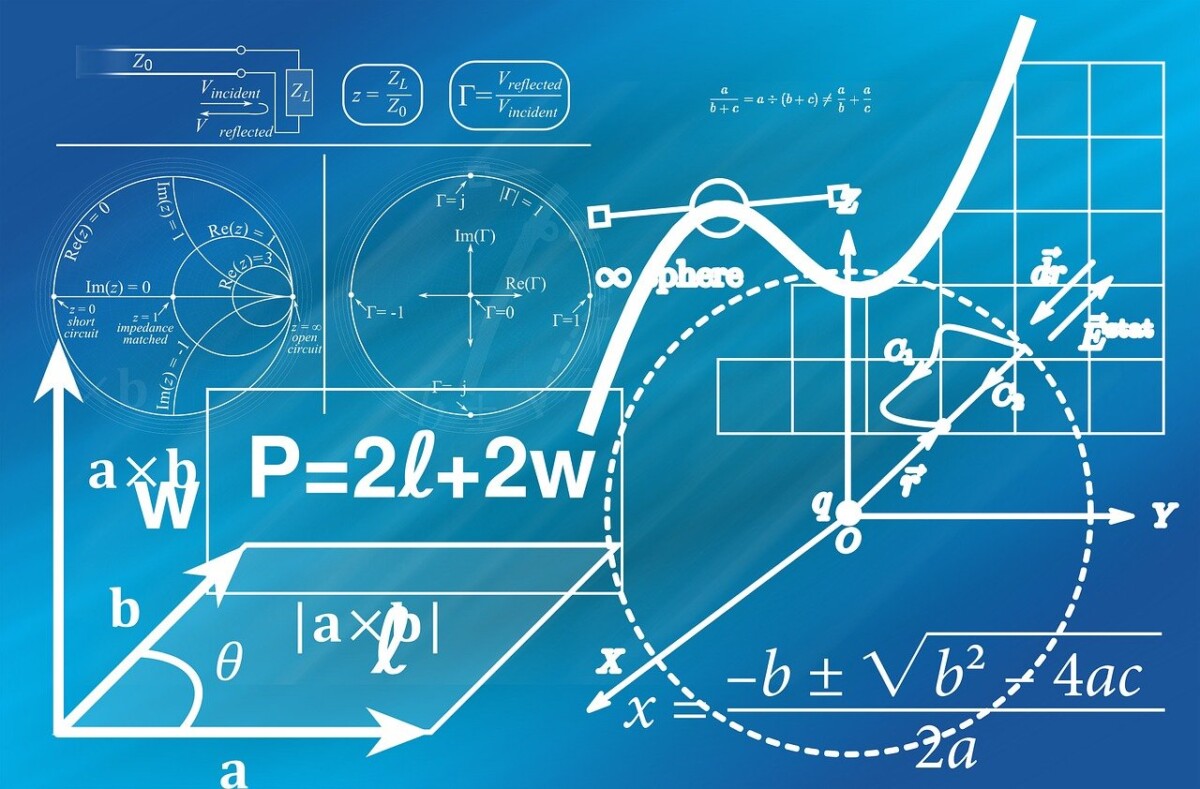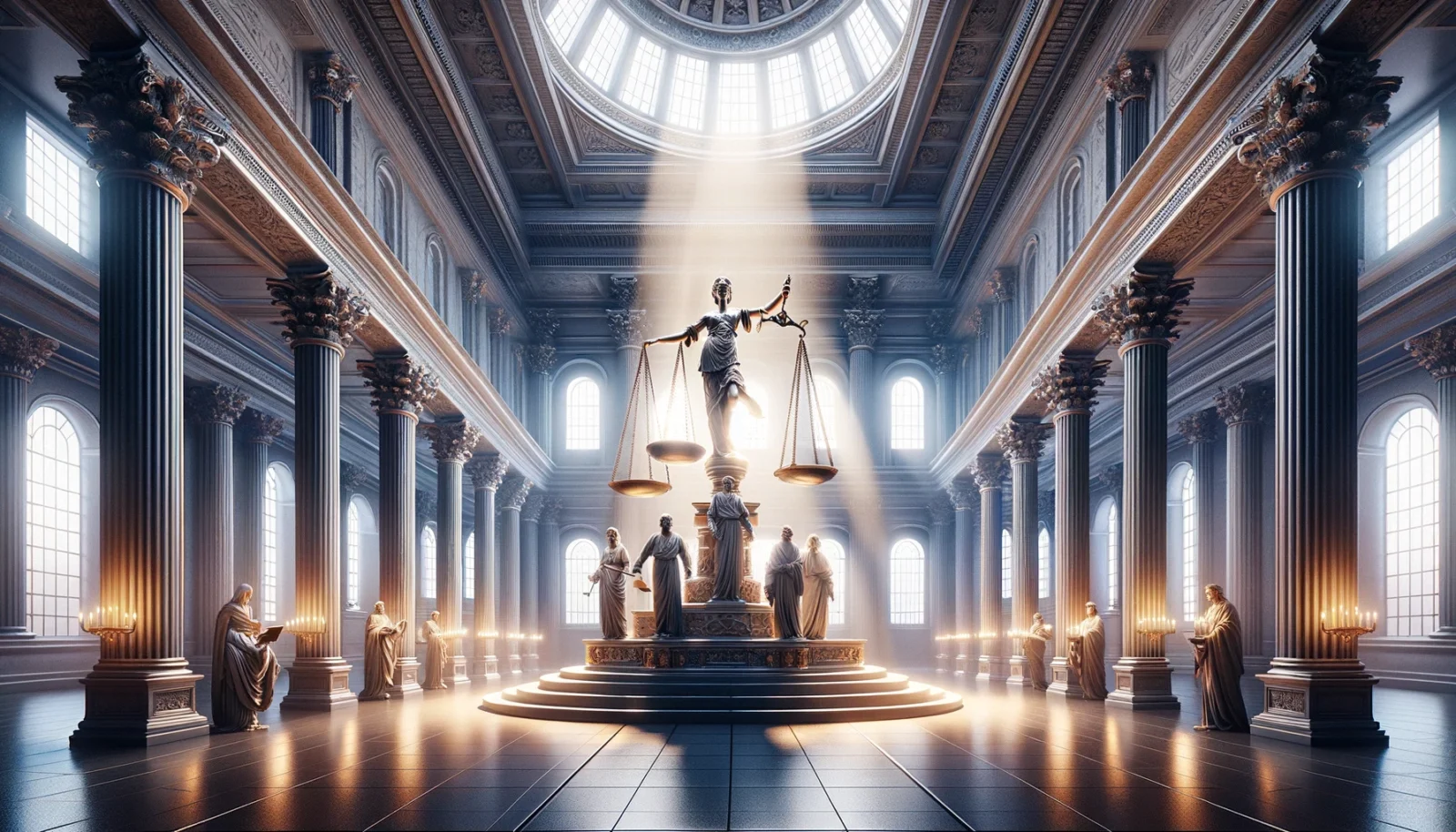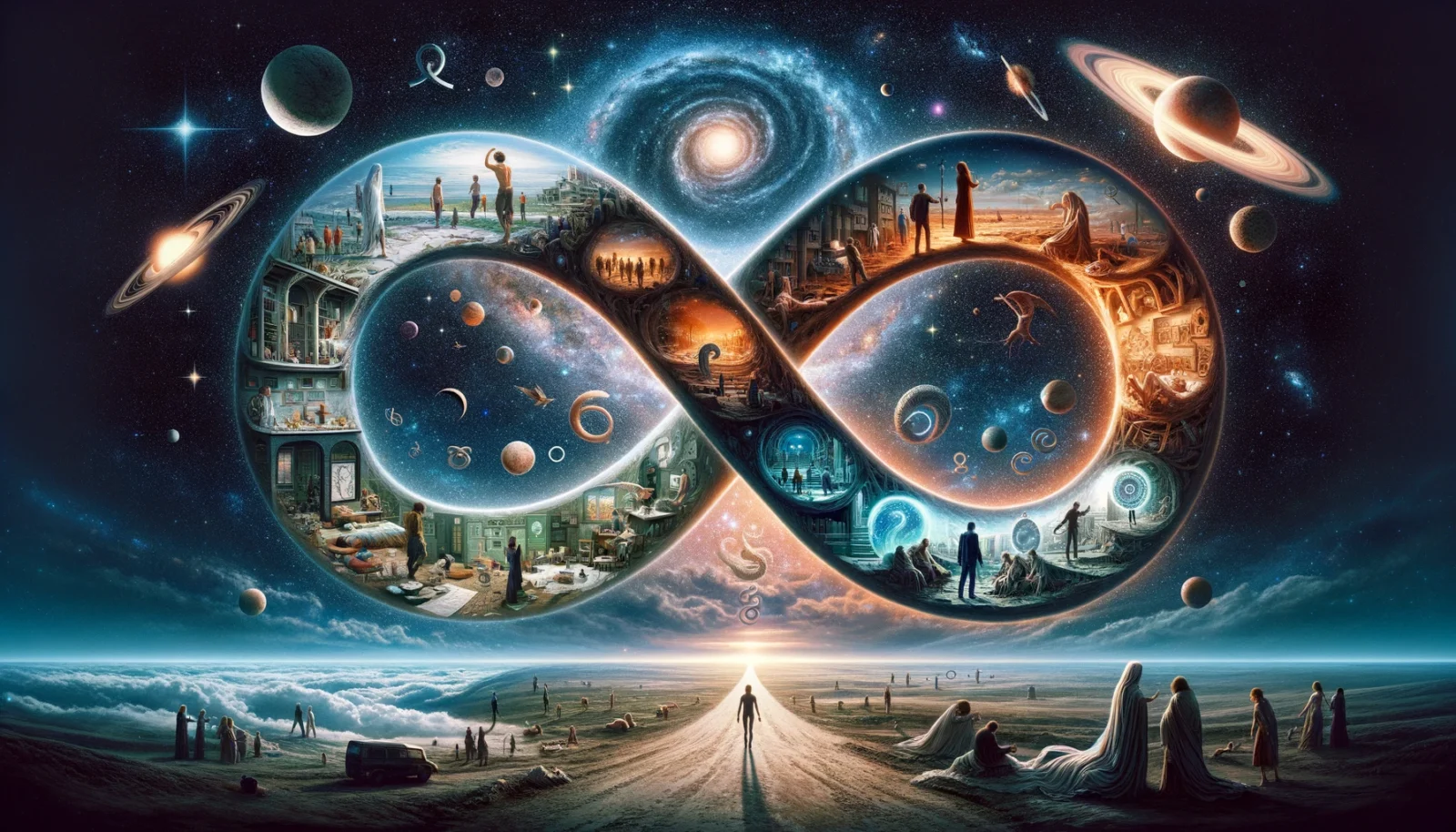Philosophy TL: ALL > Big Picture > Ideas > Philosophers > Publications
Filter To: All Ideas > Empirical > Rational > Irrational > Mind Blowing
Rational Ideas: Ideas that are not historical stories nor empirical observations. Things like algebra and logic which help us indirectly describe the empirical. Also, things like the rational idea that dinosaurs once existed which is based on empirical evidence like fossils. From 30 Philosophers: “Alongside Empirical Ideas, our minds can conjure very reasonable indirect descriptions of the material world. Our minds are adept at crafting entities that, while not having a direct presence in the Material World, are inherently rational. Think of concepts like money, ownership, and honor. These Rational Ideas indirectly describe the Material World.”
The Ideas Timeline: Rational
30 Phil, Chapter 1 Touchstone 2: Free Will.
There are two basic types of Free Will. Determinism says everything that happens is set in stone and can’t be changed; in contrast, indeterminism says people and animals make choices. There are four basic types: scientific determinism, scientific indeterminism, fatalism, and providence.
30 Phil, Chapter 1 Touchstone 4: Cultural Transmission.
Cultural transmission, perhaps more than any other trait, sets humans apart from other animals. It’s the ability to pass behaviors, traditions, and knowledge to the next generation. Cultural transmission has likely been a feature of our direct-line hominin mind for millions of years. Returning to what we have in common with chimps, both species possess this ability.
30 Phil, Chapter 2 Touchstone 5: Knowledge Framework.
In philosophy, the study of knowledge is called epistemology. It’s important because knowledge describes reality, and understanding how we craft knowledge brings philosophical clarity. Each of us maintains a personal knowledge framework that arranges the knowledge we accumulate. You can think of it as a personalized dictionary. But unlike a dictionary, the definitions are far from sterile. Each entry is imbued with your unique perspective including a tapestry of direct and indirect experiences, retained memories and emotions.
30 Phil, Chapter 2 Touchstone 6: Philosophy.
Philosophy is the systematic study of fundamental questions concerning existence, knowledge, values, and meaning. It’s a discipline guided by reason and the evaluation of evidence. A central question is “How should we live?” While there is a general agreement on overarching principles, as always, the devil is in the details. In general, philosophy encourages you to continually refine your mental, emotional, and physical self—a task that involves not just understanding words but grappling with the experiences and emotions they represent. It also urges you to be content with who you are now, while fostering a genuine desire to help others. Philosophy doesn’t just address the “what” of our lives; it also delves into the “why” and the “how should we proceed.” It’s good advice, a possible explanation for the unknown, or an exploration of the unknowable.
30 Phil, Chapter 3 Touchstone 7: Ontology.
Ontology: When we’re alive, life feels endless, stretching beyond the horizon of our imagination. The realization that it must end is not easily accepted. We’re not just sentient beings; we are self-aware. For many, the notion that we cease to exist after death is unbearable. We can’t help but wonder if we’re special; if something inside us continues even when our bodies stop. It’s about the human instinct for self-preservation extending beyond life. We lean into beliefs that promise we might continue in some form. This sphere of thought is called Ontology.
30 Phil, Chapter 3 Touchstone 8: Holism.
Holism views things as a whole, emphasizing interconnectedness and interdependence, and values unity and synthesis. It is essential for fully understanding complex systems like living organisms and ecosystems. This notion of an underlying, unifying essence mirrors the intricacies of the natural world, where each element, though distinct, harmoniously contributes to the grander mosaic of existence.
In the vibrant intellectual climate of Ancient Greece, the 6th century BCE marks the embryonic stage of formal logic, attributed to the philosopher Thales of Miletus (around 624-546 BCE). Thales, recognized as the first of the Seven Sages of Greece, embarked on a quest that laid the foundational stones of logical thought. He shifted the explanation of natural phenomena away from mythological interpretations towards rational principles.
30 Phil, Chapter 4, Laozi, Touchstone 9: Wu-wei or “non-action”
The term wu-wei is often translated as “non-action.” It is a general concept. It is the idea that the universe has a flow, and it is better to ride that flow than to fight it. Wu-wei is non-action, effortless action, or inaction, but does not mean laziness or passive behavior. It refers to the practice of avoiding conflict or competition, but it does not mean you do not engage. Instead, you accept the natural order of things rather than trying to force your will or desire upon the world.
30 Phil, Chapter 4, Laozi, Touchstone 10: Authenticity.
Ziran is often translates to “of its own.” Living in accordance with Ziran means you embrace naturalness. You welcome the spontaneous aspects of existence. With Ziran, you flow with nature while embracing your true self and innate tendencies, your authentic self. Living in accordance with Ziran is you attaining a state of inner peace, balance, and harmony. By cultivating a deep connection with the natural world and allowing things to unfold organically, you can experience the intrinsic flow of the Dao. For example, a conversation that unfolds without order and a musician improvising both exemplify Ziran.
30 Phil, Chapter 4, Laozi, Touchstone 12: Unknowable Dao.
The “unknowable Dao” is the skeptical belief that the true nature of reality is unknowable. The Unknowable Dao is a mysterious universal reality that transcends both language and thought; it encapsulates the ultimate reality and its inherent natural order. It’s the idea that the Dao cannot be fully comprehended nor expressed in words. It resonates in modern times. What we perceive as reality is merely a shadow of the full scope of what reality actually is. Consider, for instance, the concept of visible and non-visible light. You perceive visible light and may think it’s the whole spectrum, but science tells us it’s not.
30 Phil, Chapter 5, Confucius, Touchstone 13: Normalcy.
Normalcy refers to the standards or patterns established through repeated experiences and societal norms, serving as a baseline for judging deviations. Our concept of “normal” influences how we label and react to the world, shaping our perceptions of what is good, bad, or different. These norms are formed from personal and collective experiences, and they can evolve as we challenge ingrained prejudices and expand our acceptance of diversity. Understanding normalcy helps us recognize how our labels impact our interactions and views of the world.
This view of normal overlaps with existing ideas, including David Hume’s Bundle Theory as well as with behavioral philosophy which considers normalcy as a normative foundation, focusing on individual perceptions and experiences within a broader behavioral context.
30 Phil, Chapter 5, Confucius, Touchstone 14: Schemas.
A schema is a mental structure we employ to organize and interpret information. We classify things into schemas, which we can then modify by adding or removing elements. Schemas help us simplify life. Once things are categorized as normal or abnormal, we utilize our cognitive processes, such as memory and association, to attach emotional or value judgments like good, bad, great, horrible, delicious, gross, and so on, to these “normal” or “abnormal” classifications.
30 Phil, Chapter 6, Buddhism, Touchstone 15: Illusion: Self and Non-self.
The Buddhist terms of Atman and Anatman relate to the idea of “Self,” or “Atman,” your eternal soul and the Buddhist doctrine of “Non-Self,” or “Anātman.” To understand non-self, you have to understand the concept of “emptiness,” which refers to the idea that nothing lasts forever. “Non-self” says what we consider our “self” does not exist. What we perceive as an unchanging “self” or “soul,” is actually a collection of ever-changing physical and mental components, such as form, sensations, perceptions, mental formations, and consciousness. There is no enduring “I,” existing independently of these aggregates.
30 Phil, Chapter 6, Buddhism, Touchstone 16: Nondualism-Dualism.
Nondualism and dualism help to explore the many variations and nuances within the overarching discussion of our nature, whether we have a soul, what happens to it, etc. Dualism says the mind and the body are distinct entities from each other and from the universe. How they interact with the universe is a separate question. Nondualism says reality is a singular, indivisible, and all-encompassing entity, and any apparent divisions, such as the separation between the mind and body, are merely illusory. These schemas are used in many frameworks across various disciplines, including philosophy, science, and psychology to explore topics such as consciousness, the self, and reality, as well as the basis of personal identity and interconnectedness.
30 Phil, Chapter 7, Heraclitus, Touchstone 17: Impermanence and Flux.
Impermanence as Flux is the idea of an ever-changing nature of life and the interconnectedness of all things. It is summed up as:
“Everything is in flux.”
Like the idea a “river,” everything flows. The only constant is change, and to resist it is to resist the natural order of things.
30 Phil, Chapter 7, Heraclitus, Touchstone 17: Worldview.
A worldview is your current knowledge, perspectives, beliefs, and values, which evolves with experience and influences your interpretation of reality and self. Your worldview is comprised of all the frameworks you’ve embraced, and a good place to start your exploration is with the three major ones: language, religion, and philosophy. They give it structure, and your schemas thread through them, acting as filters for how you perceive reality.
30 Phil, Chapter 7, Heraclitus, Touchstone 17: Identity.
Identity is the personal mosaic of attributes that set you apart as an individual. Your identity is shaped by the worldview you embrace and mold. It encompasses the world you were born into — encompassing aspects like gender, ethnicity, and nationality — and extends to your personal choices, including affiliations, accumulated knowledge, and even your preferences in entertainment. It also includes aspects that evolve and change on your journey including such things as your current age, where you choose to live, and how you make a living. It’s a complex interplay of internal and external factors. You are born without a predetermined essence or nature. It’s only through our experiences—through the act of living—that we define our essence, our identity.
30 Phil, Chapter 8, Plato, Touchstone 20: Reflective Inquiry.
Reflective inquiry is the act of exploring and examining one’s own thoughts, beliefs, and assumptions to clear the illusions of life. It encourages a constant state of self-assessment, providing a foundation for intellectual growth based on a more authentic life. For example, with the Socratic Method, rather than lecturing you and telling you what you should think, he posed thought-provoking questions guiding and urging you to critically examine your own beliefs from within.
30 Phil, Chapter 8, Plato, Touchstone 21: Ignorance is Bliss.
The concept of “Ignorance is bliss” says being uninformed or unaware of certain truths can lead to greater happiness. Take, for example, germophobes—people who are excessively concerned about germs. Constant awareness and meticulous research about germs and contamination could elevate their levels of stress, affecting both mental and physical health.
30 Phil, Chapter 9, Aristotle, Touchstone 22: Syllogisms.
While deductive reasoning existed informally before Aristotle, he formalized it in his work “Prior Analytics” by introducing the Syllogism. It structures arguments into two key premises leading to a conclusion and remains widely used today. Aristotle knew that syllogisms can both analyze and validate derived truths, by logically connecting premises.
30 Phil, Chapter 9, Aristotle, Touchstone 23: Rationalism.
Rationalism emphasizes reason and a priori knowledge—knowledge you are born with—as the primary means of understanding reality. It says truths can be known independently of experience and that reason alone can provide an understanding of the world.
30 Phil, Chapter 9, Aristotle, Touchstone 24: Empiricism.
Empiricism says knowledge comes primarily from sensory experience. It emphasizes the role of observation and evidence in forming beliefs and understanding the world.
30 Phil, Chapter 9, Aristotle, Touchstone 25: Logic.
Formal logic is originated in Greece, and Aristotle is considered one of the most important figures in its early development. Aristotle’s work on logic, which is primarily contained in his collection of works known as the, “Organon” (meaning “instrument” or “tool”), formalized many of the principles of deductive reasoning that are still in use today.
30 Phil, Chapter 9, Aristotle, Touchstone 26: Logical Fallacies.
A logical fallacy is a flaw in reasoning that invalidates an argument. In simple terms, it’s when a conclusion doesn’t logically follow from its premises. They sidestep issues with a lack of valid argumentation. While using a fallacy doesn’t mean the conclusion is wrong, it does indicate that a valid argument has yet to be made. In “Sophistical Refutations,” Aristotle discusses various kinds of fallacies, including those that occur in language and those that are more about the process of reasoning itself.
30 Phil, Chapter 9, Aristotle, Touchstone 27: Eudaimonia.
Eudaimonia is happiness achieved through a flourishing life of virtue, including developing moral and intellectual faculties to their fullest potential; and is the best way to live. In Nicomachean Ethics, Aristotle defined the goal of life as eudaimonia, attainable through a life of rational activity guided by virtue. To flourish, one must make balanced choices that avoid extremes—a concept he called the “golden mean.” In my “good intent-good results” anchor device, Eudaimonia focuses on “good intent.” Aristotle teaches you that the results of your actions will generally be good if you act virtuously. He believed that humans inherently strive for it, with a virtuous life being the most reliable path. In simpler terms, humans seek a life filled with purpose, moral virtue, and a sense of lasting accomplishment.
For me, Aristotle’s Eudaimonia takes on a deeper meaning. Although eudaimonia is often translated as “happiness,” it signifies a deeper state of flourishing now and into the future. Aristotle hinted at the importance of the value of external things like friends, wealth, and power. Things like your contributions to society as part of fulfilling your role in the community. This can be as simple as a fulfilling career, pursuing a meaningful hobby, or even living a life reading books. Although Aristotle hinted at the future void and legacy, his eudaimonia was not directly tied to it.
For me, eudaimonia ripples into the unknown void. A concept I call “Holistic Eudaimonia,” an all-encompassing approach to well-being.
30 Phil, Chapter 10, Pyrrho of Elis, Touchstone 28: Skepticism.
Skepticism emphasizes the continuous challenging of beliefs. Pyrrhonian Skepticism, founded by Pyrrho of Elis, takes this a step further by encouraging you to suspend judgment about reality and truth. This approach urges you to question your beliefs and avoid dogmatism. With skepticism, you question both reason and sensory data. Pyrrhonian Skepticism asserts that neither reason nor sensory perception can provide us with certain knowledge, leading to the suspension of judgment on all things.
30 Phil, Chapter 10, Pyrrho of Elis, Touchstone 29: Social Constructs.
A social construct is a shared, non-natural belief created and maintained by groups that shape reality. These are cultural blueprints that encompass shared ideas and frameworks. Many aspects of the world exist independently of humanity and are not social constructs, such as stars, animal reproduction, and gravity. In contrast, things that do not exist in nature and are social constructs include marriage, language, and money.
30 Phil, Chapter 11: The new look at the Epicurean Happiness Toolkit refines Epicurean tools into a clear 1-2-3-4 structure: one goal (pleasure), two types of pleasures, three categories of desires, and the Four-part Remedy (Tetrapharmakos). This presentation emphasizes pleasure as the ultimate aim, specifically ataraxia (peace of mind) and aponia (absence of pain), while replacing the term “hedonism” with “pleasure” to align more closely with Epicurus’s nuanced understanding of happiness.
30 Phil, Chapter 11, Epicurus, Touchstone 30: Agnosticism.
Agnostics assert that it is impossible to either prove or disprove certain claims, such as the existence of unicorns, ghosts, or Valhalla. Within OVM, Agnosticism is the empiricist view that sits between true believers and true skeptics. OVM is one of the Five Thought Tools in the TST Framework.
Epicurean Agnosticism: Epicureans generally lean toward agnosticism, showing indifference to unknowable mysteries. They argue that pondering such mysteries likely leads to unhappiness. Epicureanism does not advocate for agnosticism as a dogmatic belief, but rather as a practical approach to dealing with the unknowable.
30 Phil, Chapter 11, Epicurus, Touchstone 31: Dichotomy of Pleasure.
Epicurus defined two types of pleasure: short-term and long-term. Too frequently people put short term pleasures over long-term ones causing deeper harm than warranted.
A short-term pleasure is kinetic as in the active enjoyment of fulfilling a desire, such as eating a delicious meal or engaging in a pleasurable activity. Longer or deeper pleasures are katastematic and include the relief of quenching one’s thirst or the contentment of a good night’s sleep. Put simply, for each pair of kinetic-katastematic pleasures, Epicurus wants you to prioritize the katastematic pleasure to live a better life.
30 Phil, Chapter 12, Philo of Alexandria, Touchstone 32: Allegorical Interpretation.
Allegorical interpretation is the process of understanding the symbolic meaning behind a text or story. It is a literary technique in which characters, events, and settings represent abstract ideas or moral qualities.
30 Phil, Chapter 13, Marcus Aurelius, Touchstone 33: Cognitive Reframing.
Cognitive Reframing: an Ancient Stoic “CBT” Technique: Cognitive reframing is a modern therapeutic technique employed in cognitive behavioral therapy (CBT) and other forms of psychotherapy, and it has its philosophical roots in ancient Stoic thought, and Zeno himself is behind it.
Emotions are not arbitrary or purely biological responses, they are rooted in your worldview and affected by the world around you. When you experience an emotion, it is often because you have made a judgment about it.
30 Phil, Chapter 13, Marcus Aurelius, Touchstone 34: Negative Visualization.
It is not external events, but our thoughts about them, that cause distress. Many of us don’t truly appreciate our family, friends, and possessions so visualizing their absence increases appreciation for them. Negative visualization finds a modern counterpart in “defensive pessimism,” a cognitive strategy in psychology. You start by casting your gaze ahead, pinpointing potential hiccups in your journey. You then explore those scenarios.
30 Phil, Chapter 13, Marcus Aurelius, Touchstone 35: Cognitive Distancing.
Cognitive Distancing is a psychological technique where one separates themselves from their thoughts and emotions to gain perspective and objectivity. By viewing thoughts as transient and not necessarily true, individuals can reduce their emotional impact and make more rational decisions. This technique aligns with the Stoic principle of View from Above, where one mentally elevates themselves to see the broader context of their situation.
30 Phil, Chapter 14, Badarayana, Touchstone 36: Cause and Effect.
While karma carries spiritual connotations, cause-and-effect is the non-religious equivalent. From this perspective, cause and effect represents the idea that every action has a reaction, and that our choices and behaviors will inevitably have consequences.
The ethical implications imply a personal responsibility and acceptance of consequences. The results of our good and bad actions highlight the importance of focusing on good intent, as our actions have a direct impact on our well-being and the well-being of others.
30 Phil, Chapter 14, Badarayana, Touchstone 37: Cognitive Biases.
Cognitive biases are systematic errors in thinking; they arise when your brain attempts to simplify the complex. They were defined and gained prominence in the last century and are now a part of many critical thinking frameworks. For example, the TST Framework classifies them under the “Four Mind Traps,” as one of four traps to avoid. The others are stereotypes, logical fallacies, and heuristics.
30 Phil, Chapter 15, Saint Augustine, Touchstone 38: Chronoception.
According to Einstein’s theory of relativity, time is intertwined with space in a four-dimensional continuum known as spacetime. However, our experiencing of it is called chronoception. Augustine was one of the first to describe time as a subjective experience. Today we know it is influenced by a variety of factors, including our attention, memory, and emotions, as well as things like light and noise. Time is commonly perceived as something external, an attribute of reality. Augustine brought an introspective approach asserting the “sense” of time is within us.
30 Phil, Chapter 15, Saint Augustine, Touchstone 39: Eternity.
Eternity is the idea of an endless timeline. Visualize a river that flows in both directions as far as the eyes can see. But for Augustine, eternity is “all time at once,” and his idea positions it as a precursor to the modern block universe theory.
30 Phil, Chapter 16, Al-Farabi, Touchstone 40: Intellect.
Intellect refers to the ability to reason and understand objectively, particularly with regard to abstract or academic matters. Al-Farabi delineated human understanding into three phases: the potential, actual, and acquired. His insights laid the groundwork for today’s understanding, a roadmap for how our thinking grows over time.
The Potential Intellect is the inherent capacity within us all to absorb and process information, much like an empty library of shelves waiting to be filled with books. The Actual Intellect is the activated potential within us, the process of transforming information into knowledge and understanding. It’s like a library that’s started filling its shelves with books, each one signifying a new concept, fact, or perspective grasped. The Acquired Intellect is the advanced state of understanding where knowledge and insight spring forth from an internal wellspring, echoing a sense of innate wisdom. Imagine a comprehensive library that becomes a center for creating knowledge itself.
30 Phil, Chapter 16, Al-Farabi, Touchstone 41: Existence.
Metaphysics, the branch of philosophy exploring being and reality, investigates what exists and how they exist. You are born a human, you can’t change that, but the essence of you, your identity either evolves as you age or you were born with your identity. In 350 BCE, Plato proposed a realm of Forms and said you are born with it all. Aristotle disagreed. In about 1000 CE, Avicenna said your “essence precedes your existence.” In the 1900s, Sartre comes along and says nope again, “your existence precedes your essence.” Meanwhile, science has largely sided with Aristotle and Sartre.
30 Phil, Chapter 17, Alhazen, Touchstone 43: Perception.
Perception is the process by which your brain interprets sensory information. While senses give you direct information, your perception gives you indirect understanding.
30 Phil, Chapter 18, Peter Abelard, Touchstone 44: Intent.
The concept of intent has deep roots. Aristotle, in his Nicomachean Ethics, argued that voluntary actions guided by intention were essential for moral responsibility and virtue. Similarly, Roman law incorporated the concept of “mens rea,” a guilty mind, as a vital element in determining guilt. In 30 Philosophers, intent is explored using a “good intent-good result” device.
30 Phil, Chapter 18, Peter Abelard, Touchstone 46: Pattern Recognition.
Humans possess an extraordinary ability to identify patterns both in nature as well as in our minds. It is fundamental to how we understand the world, and at the core of the universals debate. Building on pattern recognition, our minds also engage in pattern ranking. Allowing us to hierarchically organize the patterns we perceive.
30 Phil, Chapter 19, Guru Nanak, Touchstone 48: The Five Thieves.
Central to Sikh philosophy is the concept of the Five Thieves. The Five Thieves assert that the path to happiness is achieved by managing or removing the negative forces in your life including lust, anger, greed, attachment, and ego. The Five Thieves provide ethical guideposts, posts that are part of a larger Sikh framework that also emphasizes virtues to cultivate, such as compassion and humility.
30 Phil, Chapter 23, Roger Williams, Touchstone 57: Separation of Church and State.
More than a historical or religious treatise, the Bloody Tenet by Roger Williams is a seminal work. It launched a full-throttle assault on the prevailing norms of religious and political intolerance that plagued both Old and New England. In it, he passionately argued for the separation of church and state insisting that governments had no role in regulating thought or belief. One of Williams’ most evocative lines was the call for separation:
“…a hedge or wall of separation between the Garden of the Church and the Wilderness of the world.”
30 Phil, Chapter 23, Roger Williams, Touchstone 58: Liberalism.
Liberalism emphasizes personal freedom for all, individual rights, equality before the law, and limited government intervention. A suitable guiding statement is:
“Social progress through individual autonomy, political freedom, civil liberties, and equality for all.”
Emerging from the intellectual ferment of the Enlightenment, liberalism offered a radical departure from the classism that dominated for centuries.
30 Phil, Chapter 20, Francis Bacon, Touchstone 51: The Scientific Method.
Science is the ongoing study of nature through observation. It’s that simple. If you see something new in nature, that’s science. Many definitions of science tend to intertwine the “how,” but the “how” is perpetually evolving, just like science itself remains a continual journey, never settling into dogma. Currently, we call the advanced systematic “how” of science the scientific method. It is an iterative process that uses controlled observation, induction and deduction, controlled testing with falsifiability, modeling, and peer review to understand objective reality.
30 Phil, Chapter 24, Locke, Touchstone 63: Law.
Law is one of the three truth hammers because it aims to uncover specific truths using empirical data, logic, reason, facts, and peer review.
30 Phil, Chapter 24, Locke, Touchstone 64: Natural Rights.
Natural Rights are the inherent rights in our nature that all people have simply by being human. They are not externally granted.
30 Phil, Chapter 24, Locke, Touchstone 60: Due Process.
Due process is the procedural safeguard that stands between the individual and arbitrary exercise of authority. It is the legal structure that prevents your inherent rights from being unfairly stripped away. In essence, due process is the set of rules that ensures that if the government—or any other body—wishes to deprive you of your life, liberty, or property, it must do so following an established and predictable method.
30 Phil, Chapter 21, Galileo, Touchstone 53: Infinitesimal.
The infinitesimal is a form of infinity representing a theoretical value that is infinitely close to zero but not zero itself. Galileo Galilei discussed concepts related to the infinitesimal in his work “Two New Sciences”. In this work, he explored the foundations of kinematics and the strength of materials, addressing ideas that touched upon the nature of infinitely small quantities and their applications in science.
30 Phil, Chapter 22, Descartes, Touchstone 56: Mind-Body Dualism.
This concept splits the universe into two different substances. Cartesian Dualism splits the mind and body into separate entities that interact with each other. It fundamentally challenged the Aristotelian view that the mind and body are inseparable, laying the groundwork for modern explorations of the unknown and unknowable.
30 Phil, Chapter 22: In this new look at Descartes thought experiment, we first take a look at his hyperbolic doubt, and then run his thought experiment a second time using rational doubt transforming his thought experiment from the irrational to the rational.
30 Phil, Chapter 25, Spinoza, Touchstone 65: Monism.
Monism says the universe is composed of a single substance. An infinite reality that underpins all existence. There is only the Material World, no other realms.
30 Phil, Chapter 25, Spinoza, Touchstone 66: Material-Spiritual Framework.
The Material-Spiritual Framework explores the interplay between the material world and spiritual beliefs. It allows for an open-minded exploration of spirituality and religion, incorporating a personal journey that integrates the empirical, rational, and irrational to form a cohesive worldview.
The Material World is the only realm we know firsthand. Spirituality represents anything larger than the material world and ourselves. It encompasses the currently unknown, the unknowable, and non-physical aspects like consciousness and soul. The Material-Spiritual Framework divides spirituality into agnostic, nontheistic, and theistic. Agnostic Spirituality asserts that nature is purely natural without spiritual guidance. Nontheistic Spirituality asserts the universe has a spiritual essence without supernatural beings. Finally, Theistic Spirituality asserts one or more supernatural beings exist, with more than one realm possible.
Invented by Newton in the 1660s (pub. 1687) and independently by Leibniz in the 1680s (pub. 1684). Both built on Galileo’s popularizing the idea of the infinitesimal.
Calculus, the mathematical study of continuous change, introduced the concepts of differentiation and integration, providing tools to model and analyze motion, growth, and the infinitesimal. Newton, working primarily in England, utilized calculus to formulate his laws of motion and gravitation, fundamentally altering our understanding of the physical universe. Simultaneously, Leibniz developed a similar set of mathematical tools, contributing a notation system that remains in use to this day. He introduced the integral sign (∫) and the differential operator (d), foundational in calculus for representing integration and infinitesimal changes, respectively. His “dy/dx” notation for derivatives elegantly describes rates of change, all of which remain central to calculus today.
30 Phil, Chapter 24, Locke, Touchstone 61: The Social Contract.
The social contract emerges out of natural rights and civil government. A government formed by the “collective will” of the people specifically to protect these rights. Citizens consent to be governed, but this consent comes with the stipulation that their inalienable rights must be respected and safeguarded.
30 Phil, Chapter 26, Voltaire, Touchstone 67: Fourth Estate.
The fourth estate refers to the role of media in society. During Voltaire’s time, the seeds were being sown for the concept of the fourth estate. This was due in part to his tireless advocacy for freedom of speech and the press, an echo of the force of public opinion.
30 Phil, Chapter 26, Voltaire, Touchstone 68: Journalism.
Journalism serves as a check on power, and is one of the Truth Hammers. Unlike the scientific method, which is grounded in experimentation, journalism thrives on investigation and storytelling. It doesn’t just present facts; it contextualizes them, weaving narratives that help society understand complex issues.
30 Phil, Chapter 28, Kant, Touchstone 72: Transcendental Idealism.
The Split and Three-Tine Fork: Transcendental Idealism is Kant’s view on epistemology. His distinction between phenomena and noumena and his three-tiered approach to knowledge. Kant introduced a crucial distinction between phenomena—the world as we see and understand it—and noumena—the world as it exists independently of our perception.
Kant chose a three-tine approach to knowledge. Analytic A Priori statements are a subset of Rational Ideas, the true by definition ones. The ideas that are of the mind only (Analytic). Synthetic A Priori statements are another subset of Rational Ideas that tell us something new about the Material World (synthetic). Synthetic A Posteriori statements are empirical ideas about the world and are therefore verifiable.
30 Phil, Chapter 28, Kant, Touchstone 73: Categorical Imperative.
The Categorical Imperative says you should act only in a manner that you would be comfortable seeing transformed into a universal law.
30 Phil, Chapter 27, Hume, Touchstone 69: Skeptical Empiricism.
Skeptical Empiricism challenges the idea of innate knowledge, asserting all we know stems from our experiences.
30 Phil, Chapter 27, Hume, Touchstone 70: The Problem of Induction.
The logic behind induction is inherently circular, hence, the problem of induction. We expect future events to be like past events because this has generally been true in the past. This justification itself is inductive, making the whole process circular and self-referential. Although induction works effectively in predictable ways, the problem of induction remains a captivating puzzle without an easy solution.
30 Phil, Chapter 27, Hume, Touchstone 71: Hume’s Fork.
Hume’s Fork is a philosophical tool that categorizes meaningful statements into two distinct types: relations of ideas and matters of fact. It offers a clear demarcation between different kinds of truths. Relations of ideas are statements that are necessarily true, such as “all bachelors are unmarried.” Matters of fact, in contrast, are statements based on empirical experience, such as “the sun rose in the East this morning.” The problem of Hume’s Fork is that, when taken strictly, statements that fall outside these two categories are dismissed as logically false and meaningless.
30 Phil, Chapter 24, Locke, Touchstone 62: Checks and Balances.
For the preservation of individual liberty and the prevention of tyranny, political power must be distributed among different branches of government—executive, legislative, and judicial. It is grounded in the idea that human nature is easily corruptible and concentrating power is dangerous. This diversification embodies the philosophical idea of checks and balances and ensures that no single authority goes unchecked.
30 Phil, Chapter 31, Sartre, Touchstone 78: Anxiety.
The birth of modern psychology: In existentialism, anxiety is the result of confronting the inherent freedoms and responsibilities of human existence. It is not necessarily about fearing specific outcomes or events but rather the realization of the vast possibilities and choices one faces in life, and the awareness of one’s own freedom to shape one’s existence.
30 Phil, Chapter 29, Mill, Touchstone 74: Harm Principle.
You’re free to do what you want, as long as you don’t harm others. It delineates between self-regarding and other-regarding actions as a basis for when societal intervention is justified. Self-regarding actions are those that primarily affect the individual who undertakes them. Other-regarding actions have broader social consequences, impacting others.
30 Phil, Chapter 30, Nietzsche, Touchstone 75: Nihilism.
Shake off societal pressures: Nihilism is a tool to examine and potentially overcome the problem of illusion in reality. You use the idea that life lacks objective meaning, purpose, and intrinsic value to break free of the illusions of life like social constructs and pressures. This updated new look at Nihilism adds modern physics to the telling of how life is meaningless.
30 Phil, Chapter 30, Nietzsche, Touchstone 76: Übermensch.
The Übermensch, or superman, is the ideal person who transcends societal norms and self-imposed limitations. They overcome the existing values and moralities of society, creating their own values, and living in a way that is true to themselves.
30 Phil, Chapter 30, Nietzsche, Touchstone 77: Eternal Recurrence.
The Eternal Recurrence is a thought experiment that urges you to live as though your life will repeat itself infinitely. It is designed to awaken a sense of urgency and existential responsibility. The potency of this idea lies in its call for radical responsibility; it compels you to sift through the empirical, rational, and even irrational elements of your life.
30 Phil, Chapter 30: In this telling of Nietzsche ideas, we take a new look at it and forge it into a five-step authentic recipe. Step one is the Übermensch. It is often translated as the “Overman” or “Superman.” It is a call to individual empowerment and liberation from societal norms and traditional values. Step two in building your authentic self is the breaking of deeply held beliefs, which can cause an existential crisis. Step three is to use the vacuum of the abyss, the void, to add meaning to your life. The goal is not to dwell in Nihilism, but to approach the abyss as close as needed. Step four is about purging the bad and keeping the good. It is the most potent tool Nietzsche offers for the purpose of self-examination. The Eternal Recurrence. Step five, the final step, is about striving towards a life led authentically, a life worthy of infinite repetition. Once the illusions have been dismantled, the final stage involves constructing your authentic self.
30 Phil, Chapter 31, Sartre, Touchstone 79: Consciousness.
Consciousness is a continuous, self-aware state of existence, an incessant ebb and flow of perceptions, ideas, and emotions. Consciousness is part of your worldview with two basic states: awake and asleep. It’s a complex spectrum of levels while awake, and stages while asleep.
Heidegger’s existentialism centers on the concept of “being-there” (Dasein), which refers to the unique way humans exist and relate to the world. Heidegger explores the nature of being and emphasizes the importance of understanding one’s own existence within the context of time and space. His philosophy delves into the idea of being authentic by confronting the inherent uncertainties and anxieties of life, and seeking a deeper understanding of one’s place in the world through introspection and connection to nature.
30 Phil, Chapter 31, Sartre, Touchstone 80: Bad Faith.
Bad faith is the idea of living a lie; it is the act of denying your inherent freedom and responsibility associated with self-awareness. When you go along to get along, you are not yourself, you are being a rock, you are a “being-in-itself.” To live for yourself means your become your authentic self, you then are a “being-for-itself.”
Sartre’s existentialism emphasizes individual freedom, choice, and responsibility. It posits that existence precedes essence, meaning that individuals are not defined by any preexisting essence but instead create their own essence through actions and decisions. Sartre’s philosophy focuses on the concept of “bad faith,” where people deny their freedom by conforming to societal expectations, and encourages living authentically by embracing one’s freedom and making deliberate, conscious choices.
Next >>
Philosophy TL: ALL > Big Picture > Ideas > Philosophers > Publications
Filter To: All Ideas > Empirical > Rational > Irrational > Mind Blowing



